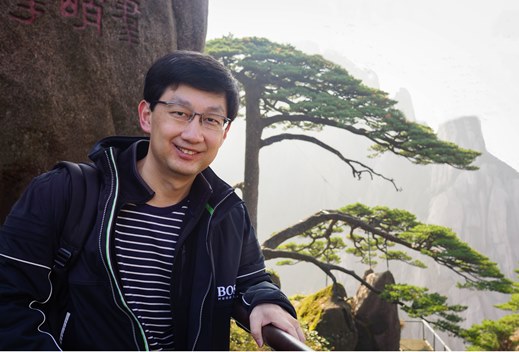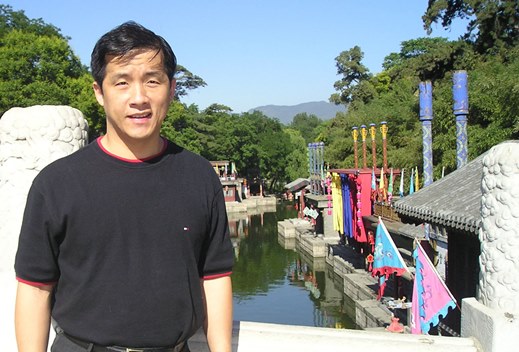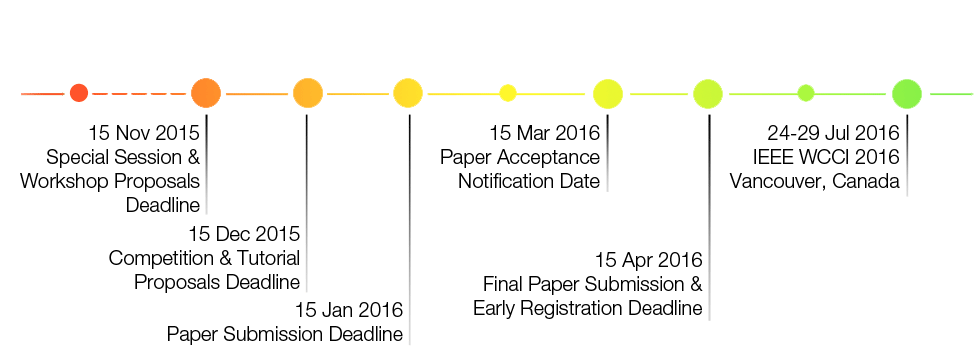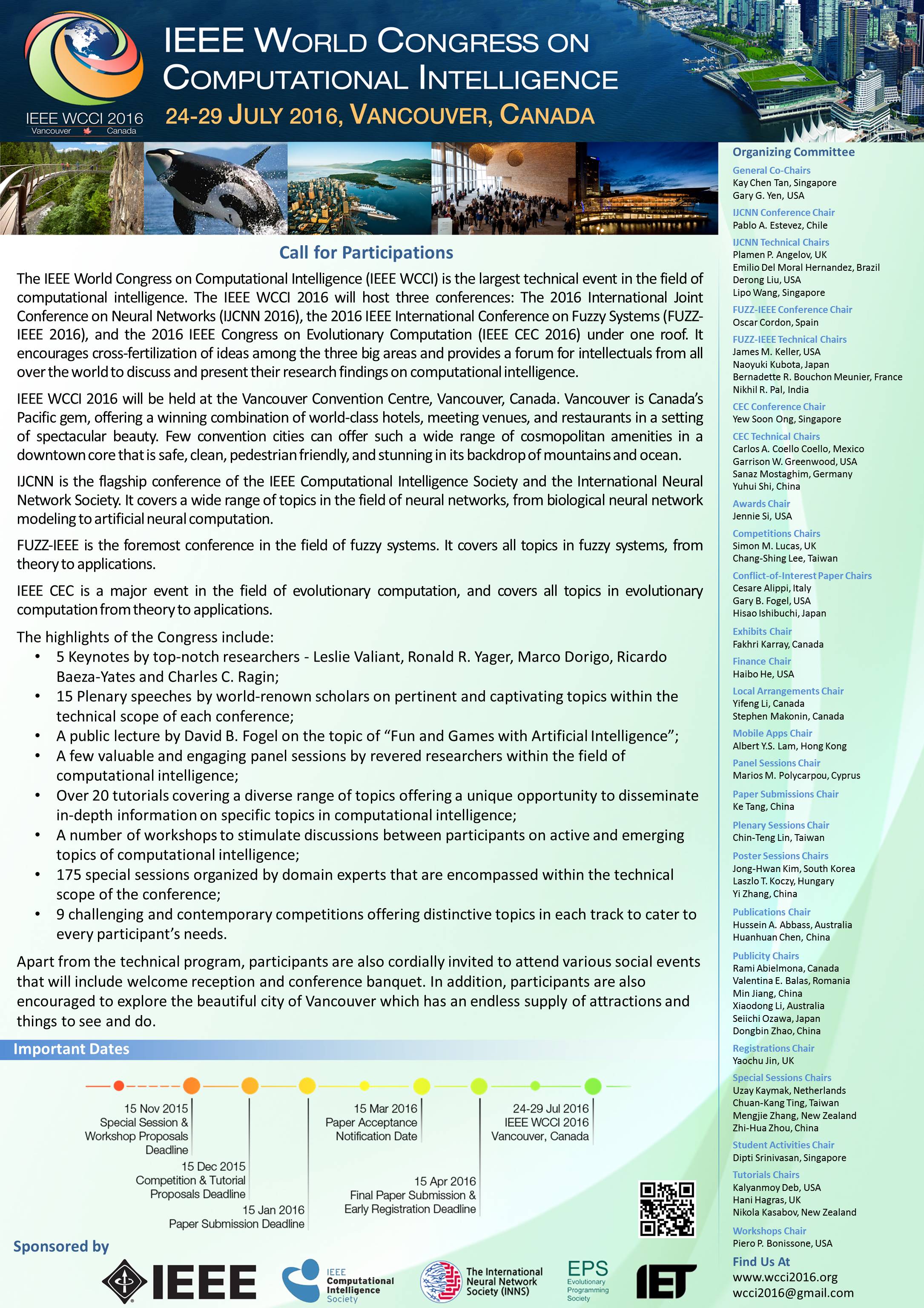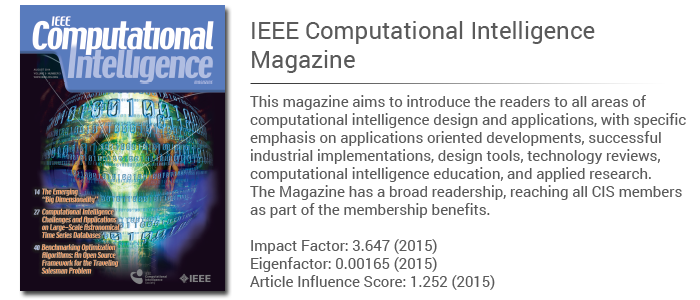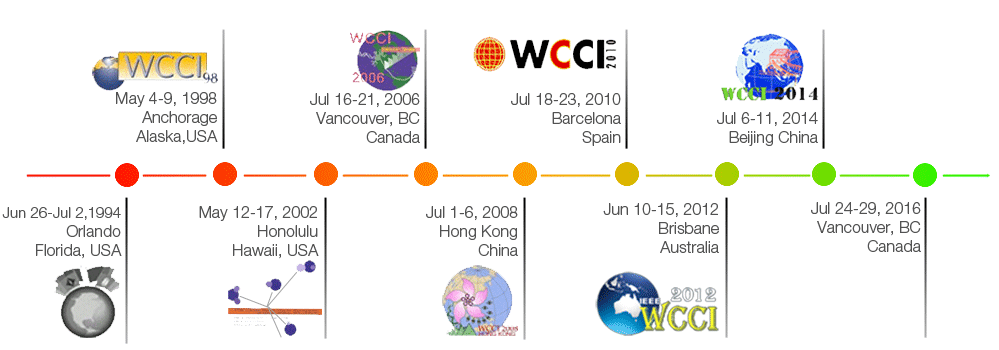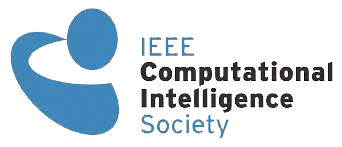Call for Papers (Click here)
Call for Participations (Click here)
The IEEE World Congress on Computational Intelligence (IEEE WCCI) is the largest technical event in the field of computational intelligence. The IEEE WCCI 2016 will host three conferences: The 2016 International Joint Conference on Neural Networks (IJCNN 2016), the 2016 IEEE International Conference on Fuzzy Systems (FUZZ-IEEE 2016), and the 2016 IEEE Congress on Evolutionary Computation (IEEE CEC 2016) under one roof. It encourages cross-fertilization of ideas among the three big areas and provides a forum for intellectuals from all over the world to discuss and present their research findings on computational intelligence.
IJCNN 2016: The annual International Joint Conference on Neural Networks (IJCNN) is the flagship conference of the IEEE Computational Intelligence Society and the International Neural Network Society. It covers a wide range of topics in the field of neural networks, from biological neural network modeling to artificial neural computation.
FUZZ-IEEE 2016: The annual IEEE International Conference on Fuzzy Systems (FUZZ-IEEE) is the foremost conference in the field of fuzzy systems. It covers all topics in fuzzy systems, from theory to applications.
IEEE CEC 2016: The annual IEEE Congress on Evolutionary Computation (IEEE CEC) is one of the leading events in the field of evolutionary computation, and covers all topics in evolutionary computation from theory to applications.
Papers for IEEE WCCI 2016 should be submitted electronically through the Congress website at www.wcci2016.org, and will be refereed by experts in the fields and ranked based on the criteria of originality, significance, quality and clarity.
IEEE Computational Intelligence Society has maintained its position as the top leader of journals in computational intelligence. According to the 2014 Thomson Reuters Journal Citation Reports (JCR), CIS journals sustained their status as premier scholarly publications, earning high rankings in the JCR Impact Factor report.




